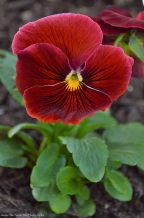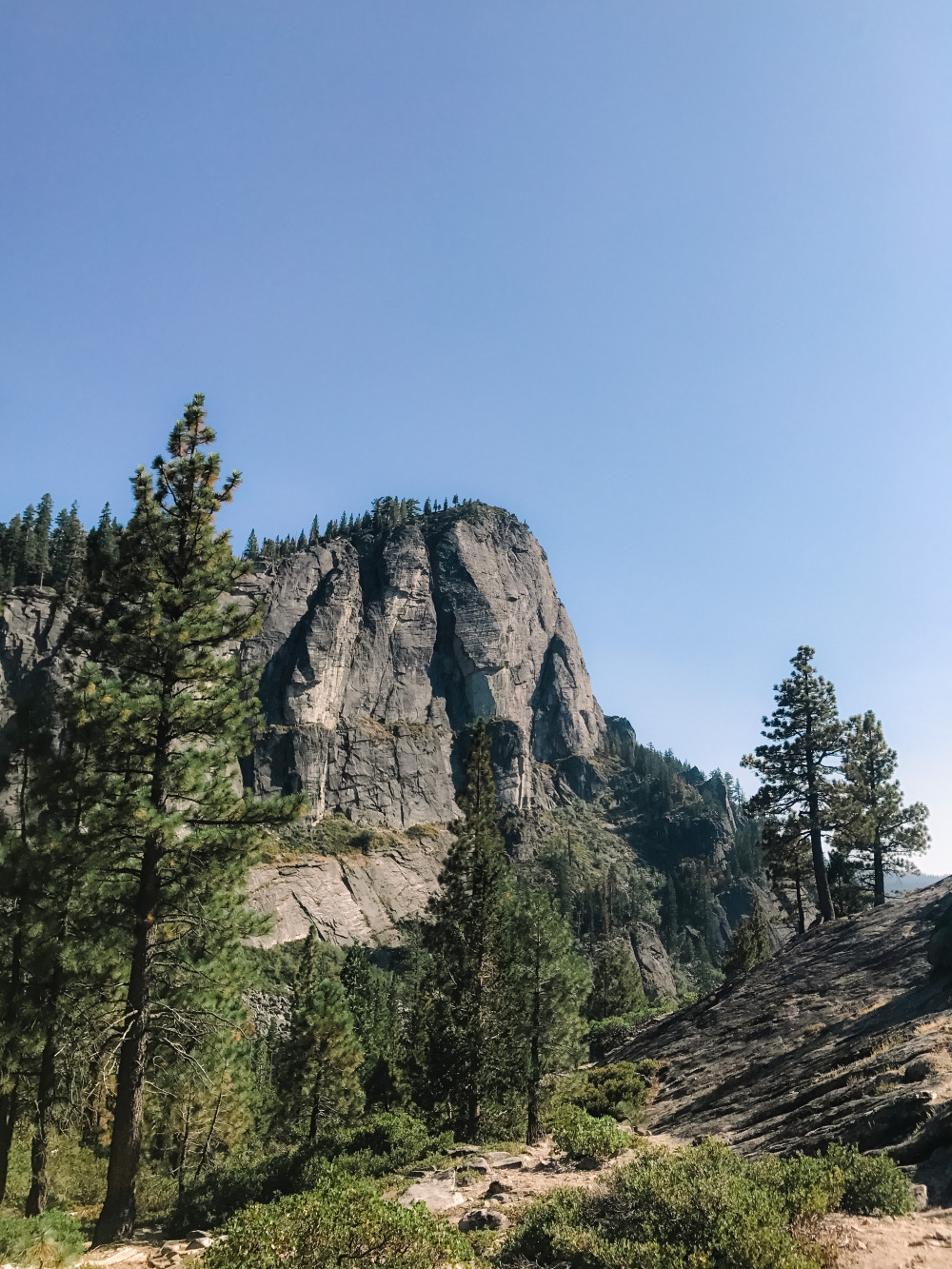Today we kick off church school, which means that our elementary students are looking at a new story. They usually do this the first Sunday of every month. Allan tells the story in worship and then they go downstairs and learn more through hands-on learning and play.
One of the ways we try to connect with what they are doing is that on the days they start a new story, I preach about it up here. That way families might be able to talk about it more, and understand it together. So, today we are doing that, and we’re looking at the story of the Woman at the Well, and Living Water.
Back when I lived in Vermont, I took up fly fishing. It looked like this amazing, relaxing experience in nature, and I thought, “How hard can it be?” So I bought all the equipment, and I went to the nearby forest and found a stream, and I cast my line. It was going to be just like “A River Runs Through It”.
 It was not like “A River Runs Through It”.
It was not like “A River Runs Through It”.
Except it wasn’t. Even when I did manage to land the line in the water, I never caught anything. I tried all these different places, every river or lake I could imagine, all with no luck. Finally I went back to the store that sold me the fly rod, and I talked to the manager who was also a fishing guide. I asked him what I was doing wrong. I told him all the places I had tried, and how I hadn’t even seen a single fish, let alone caught one.
Finally he nodded his head and said: “You’re fishing in dead water”. He explained that “dead water” is water that is either too polluted, too unexposed to sunlight, or too cut off from any healthy sources. The places I’ve been fishing all fit the bill. It wasn’t until I learned to stay away from dead water that I fish.
Dead water is a lot easier to define than something that sounds like it should be its polar opposite: Living Water. We talk about Living Water in the church a lot, and it’s sort of insider language. Dead water is pretty literal – what is dead cannot support life. But Living Water is a metaphor, and that means it’s a little tougher to pin down.
Today’s Scripture is about two things: living water, and a woman who met Jesus. To understand this story you first need to know something about the times. In Jesus day, the Jewish and Samaritan people didn’t associate with one another. In fact, the Samaritans were looked down upon. It would have been pretty unheard of for a good Jewish person to approach a Samaritan for anything, especially a Jewish man and a Samaritan woman.
And yet, that’s exactly what happens here. Jesus is traveling from Judea to Galilee, and he has to go through Samaria. He is thirsty, and so he stops at a well where a woman is drawing water out and he asks her, “Can I have a drink?”
And she knows how odd this is. She says to him, “Why are you, a Jewish man, asking me, a Samaritan woman, for a drink?”
Jesus says to her, “If you knew who I was, you’d be asking me for Living Water.”
At first the Samaritan woman is as baffled by this Living Water stuff as you and I might be. She says, “Um, you don’t have a bucket, and this is a really deep well…so, how are you going to get me water.”
But Jesus tells her, “The water in this well? You’ll drink it and be thirsty again soon. But the water I’m offering to you? It’s eternal life, and you’ll never be thirsty again.”
Living Water is what Jesus offered to her, and it’s what he offers to us even today. It’s the promise of spiritual life. The living water Jesus offers quenches our thirst for something greater than ourselves, and it sustains us, helping us to follow him. It’s not the kind of water we can get from a well or a tap. It’s water that only God can give us.
And in this story, the amazing thing is that Jesus doesn’t just offer it to those who are like him. It would be easy for him to say, “You know this is just for people like me,” but he doesn’t. He crosses a line that most wouldn’t cross in order to reach this Samaritan woman.
I think that Jesus was modeling something for us there. If Jesus is willing to cross lines in order to make connections, wouldn’t it make sense that maybe we are supposed to do the same thing? Maybe in our own lives we are being asked to dare to venture past the things that divide us, and meet others where they are.
That’s true for churches too. It’s worth remembering that Jesus doesn’t hang back in his own land, but he goes into a new one, and he seeks this woman out. That’s a good reminder that Living Water is not something that we hoard and keep to ourselves. We share it with others.
That’s why we do a lot of the work of welcoming that we try to do in this church. It’s why we are talking about how we can welcome immigrants and refugees. It’s why the rainbow flag is out front. It’s why we welcome in people who maybe have never stepped into church before in their lives, and we tell them they belong here just as much as we do.
We do it because we were all once the woman at the well, and someone crossed the lines to offer us a kind of water that we didn’t even know existed.
So that’s the first part of the story, how Jesus crossed the lines, but the second part is this: how she then crossed lines of her own. Now, in the Bible, unfortunately, women often go without names. This is no exception. In the Bible this woman is just called “the Samaritan woman” or “the woman at the well”.
But in the Catholic and Eastern Orthodox traditions, this woman was later given a name. It was “Photine” or “Photina” which means “light”. There are legends about her that are worth telling here too. It is said that Photina was immediately converted, which means she realized something was incredible about Jesus. She began to preach right after she met him, which is pretty extraordinary for a woman.
There are stories about her later life too. As she grew in the faith, she shared the same Living Water that had been shared with her with many others. There’s even a story that she converted the daughter of Emperor Nero. In another story, he calls her in, trying to intimidate him, and she just laughs at him. Can you imagine that? A lowly Samaritan woman laughing at the Emperor of Rome.
It’s hard to believe, but Photina had something that the Emperor never did. She had the Living Water that gave her a life he couldn’t imagine. Her life had been changed because of her encounter with Jesus and there was nothing he could take from her, not even her life, that could change that. Legend tells us that Nero did just that, and she was martyred for the faith. And today Photina, the humble Samaritan woman, is remembered by our Catholic and Orthodox siblings as a saint of the church.
She was an unlikely saint. She was just a woman drawing some water up out of a well. But Christ saw her, and recognized her for who she would be. The same is true for you, and me, and for everyone else. Christ sees in us, and in others, what the world sometimes does not. Christ sees our truest and best selves, and he offers us Living Water to sustain us.
That’s a reminder that Christianity is not a faith for the self-assured who have everything they need. This is not a faith for those who have everything together. Jesus didn’t find someone just like him, or someone who had the right degree of social respectability. Instead, he went to the well, where humble and underestimated Samaritan women gathered, and he gave them the most priceless gift that he had to give. And in return, she gave him all that she had.
 I started off talking about dead water, and fish, and places where life cannot be sustained because there is no connection. And, even though it’s a metaphor, maybe Living Water is indeed the exact opposite of dead water. In Living Water we are not isolated. We are not left at the well day after day. We are instead invited into connection with Christ, and with one another.
I started off talking about dead water, and fish, and places where life cannot be sustained because there is no connection. And, even though it’s a metaphor, maybe Living Water is indeed the exact opposite of dead water. In Living Water we are not isolated. We are not left at the well day after day. We are instead invited into connection with Christ, and with one another.
The more we isolate, as people, as a church, as a community, the more we risk cutting ourselves off from the sources of life. But the more we dare to cross the lines, and reach out, the more we find the opposite of death: we find life. Where there is Living Water there is connection and community, with God, and with one another. This Living Water is what will sustain us, this Living Water is what will help us to grow in every way possible, and this Living Water is what will strengthen us to be the people God always knew we could be.
Share this:- Share





